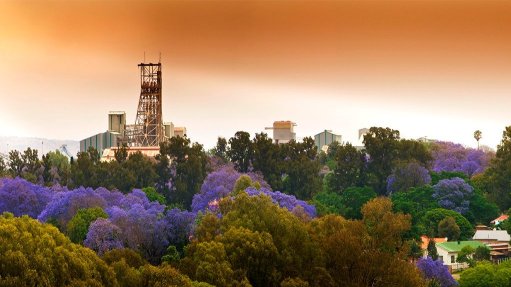First 11 train operators selected for 41 routes as South Africa takes big step in opening freight rail to private sector
Transport Minister Barbara Creecy has announced that 11 of the 25 private train operating companies (TOCs) that applied to operate routes on Transnet’s rail network have met the requirements to do so and will now enter into contract negotiations to enable them to gain access to the network and begin operating the routes.
The announcement represents a significant step in opening South Africa’s freight rail network, which has hitherto been monopolised by State-owned Transnet, to third-party operators.
This change is catered for in the country’s rail policy and has been facilitated by the recent vertical separation of Transnet’s rail business into the Transnet Freight Rail Operating Company and the Transnet Rail Infrastructure Manager (TRIM), which published the Network Statement that created the operating and tariff framework for the entry of private TOCs.
The inaugural application process for slots opened in December following the publication of the Network Statement and closed in February. It was followed by an evaluation process that culminated in the Minister’s August 22 confirmation of the first 11 successful TOC applicants.
Creecy confirmed during the briefing that these applicants had applied for a total of 41 routes across six corridors, including:
- The North Corridor, where six new entrants applied for 15 routes for the transportation of coal and chrome;
- The Iron Ore Corridor, where one new entrant had applied for one route for transportation of iron-ore;
- The Cape Corridor, where two new entrants applied for two routes for the transportation of manganese;
- The Northeast Corridor, where six of the TOC applicants had applied for 16 routes for the transportation of coal, chrome, magnetite, fuel, and containers;
- The Central Corridor, where one new entrant applied for two routes for the transportation of coal, containers (manganese); and
- The Container Corridor, where four new entrants applied for five routes for the transportation of containers, coal, and sugar.
The identities of the successful TOC applicants, their shareholders and the routes for which they had applied were not immediately disclosed.
However, Transnet CEO Michelle Phillips confirmed that letters had been sent to these TOCs indicating that they could now enter into a commercial process with Transnet to finalise an access agreement.
Once these negotiations were finalised the names of the TOCs would be released, alongside details of their routes and the commodities that would be transported.
Durations of the allocations range from one to 10 years, and operating companies can commence with operations once the contract conditions have been addressed.
Phillips revealed that one of the TOCs had indicated that it should be in a position to begin operating in the second half of 2026, while others had stated that they were likely to begin operating only in 2027 or 2028.
Letters had also been sent to the unsuccessful applicants explaining reasons for the decision, and to indicate that TRIM would be running an ad hoc process under the same Network Statement, or version three, and that they would be entitled to submit revised applications, alongside new applications, during the 2025/26 timetable.
A date of publication of Volume 4 of the Network Statement would be announced by the Department of Transport, together with a timeline for the opening of applications for available slots for the 2026/27 timetable.
Phillips confirmed that some of the TOCs had applied to lease surplus rolling stock from Transnet, which was also in the process of setting up a new partnership for a leasing company, dubbed LeaseCo. However, it was also possible that the TOCs would source rolling stock elsewhere.
She also stressed that the TOCs were aware of the poor state of parts of the network on which they had applied to operate, and that they would, thus, be accessing the network at their own risk.
That said, Transnet had existing plans and capital budgets for upgrading and maintaining the network, and it would also be seeking to supplement that funding through applications to the National Treasury’s Budget Facility for Infrastructure (BFI), which would be holding more regular bid windows.
Transnet had applied for R16.4-billion from the BFI in July, R10-billion of which was to fund upgrades to the North and Ore corridors, and the balance for port development in Durban and Ngqura. It was preparing a second BFI submission for R18.6-billion in October.
In the medium term, the network could be further upgraded through private sector participation in infrastructure development, most probably through concessions, with the first requests for proposals in this regard expected before the end of 2026, following a strong response to a request for information earlier in the year.
Creecy said the opening of the rail network to private sector participation was motivated by a desire to lift freight rail volumes from 160-million tons to 250-million tons by 2030, with the lion’s share of the 90-million-ton gap expected to be closed by the private TOCs.
“Today’s announcement is not just about the allocation of rail slots — it is a step toward a future where our railways drive economic growth, job creation and sustainability,” she added.
Article Enquiry
Email Article
Save Article
Feedback
To advertise email advertising@creamermedia.co.za or click here
Press Office
Announcements
What's On
Subscribe to improve your user experience...
Option 1 (equivalent of R125 a month):
Receive a weekly copy of Creamer Media's Engineering News & Mining Weekly magazine
(print copy for those in South Africa and e-magazine for those outside of South Africa)
Receive daily email newsletters
Access to full search results
Access archive of magazine back copies
Access to Projects in Progress
Access to ONE Research Report of your choice in PDF format
Option 2 (equivalent of R375 a month):
All benefits from Option 1
PLUS
Access to Creamer Media's Research Channel Africa for ALL Research Reports, in PDF format, on various industrial and mining sectors
including Electricity; Water; Energy Transition; Hydrogen; Roads, Rail and Ports; Coal; Gold; Platinum; Battery Metals; etc.
Already a subscriber?
Forgotten your password?
Receive weekly copy of Creamer Media's Engineering News & Mining Weekly magazine (print copy for those in South Africa and e-magazine for those outside of South Africa)
➕
Recieve daily email newsletters
➕
Access to full search results
➕
Access archive of magazine back copies
➕
Access to Projects in Progress
➕
Access to ONE Research Report of your choice in PDF format
RESEARCH CHANNEL AFRICA
R4500 (equivalent of R375 a month)
SUBSCRIBEAll benefits from Option 1
➕
Access to Creamer Media's Research Channel Africa for ALL Research Reports on various industrial and mining sectors, in PDF format, including on:
Electricity
➕
Water
➕
Energy Transition
➕
Hydrogen
➕
Roads, Rail and Ports
➕
Coal
➕
Gold
➕
Platinum
➕
Battery Metals
➕
etc.
Receive all benefits from Option 1 or Option 2 delivered to numerous people at your company
➕
Multiple User names and Passwords for simultaneous log-ins
➕
Intranet integration access to all in your organisation





















